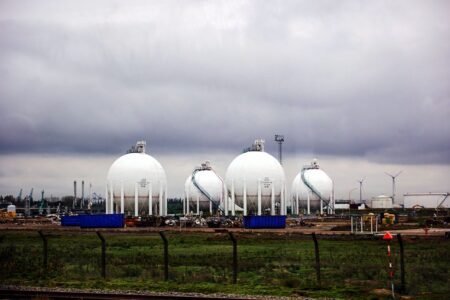The European Commission has announced a comprehensive package of measures to deliver better quality and more choice in railway services in Europe. Rail is seen as a vital part of EU transport, with a key role in addressing rising traffic demand, congestion, fuel security and decarbonisation. But many European rail markets are currently facing stagnation or decline. The Commission is therefore proposing far reaching measures to encourage more innovation in EU railways by opening EU domestic passenger markets to competition, as well as substantial accompanying technical and structural reforms.
Advertisement
The Fourth Rail Package
The European Commission has today adopted the 4th Railway Package made up of six legislative proposals focusing on four key areas.
EU wide approvals: To save time and money for companies, trains and rolling stock should be built and certified once to run everywhere in Europe. There should be one safety certificate for companies so they can operate EU wide.
A structure that works. To ensure the rail network is run in an efficient and non-discriminatory manner, the Commission is proposing to strengthen infrastructure managers and ensuring that the two functions of managing the tracks and running the trains should be kept apart.
More access to the railway. To encourage innovation and efficiency, the Commission is proposing to open up domestic passenger railways to new entrants and services efficiency
A skilled workforce: A vibrant rail sector depends on a skilled and motivated workforce. The rail package ensures that Member States can go further to protect staff when public service contracts are transferred.
SECTION 1: Standards and approvals that works
The current rules
The European Railway Agency (ERA), established by the Second Railway Package in 2004, plays a central role in promoting interoperability, harmonising technical standards through the drafting of the Technical Standards on Interoperability TSIs) for the whole EU market
However, national technical and safety rules (in particular governing rail operating procedures) remain alongside EU TSI’s creating unnecessary complexities for rail companies. According to the calculations of ERA, there are currently over 11,000 national rules in the EU. (1) Also, there are marked discrepancies between how the national safety authorities conduct vehicle authorisation and safety certification processes.
What is the problem?
But technical and administrative hurdles still persist, creating excessive administrative costs and market access barriers, especially for new entrants and rail vehicle manufacturers. Authorisation procedures for new rail vehicles can last up to 2 years and cost up to 6 million.
Even with harmonised EU standards, today rail authorisations and safety certificates are issued by each Member State.
And rail companies are required to pay the national safety authority for the cost of the approval process. Some companies have had to invest (2) man-years and pay up to 70,000 for administrative and advisory costs2 creating a high market entry barrier. This is particularly acute for freight as new entrants are more vulnerable to complexity and delays in procedures as their human and financial resources are often limited.
Stakeholder figures suggest procedural authorisation costs are up to 10% of costs of locomotives per country. Where these are to be used in three Member States, the overall costs could be about 30%.
Bureaucracy involved in the market entry process has been identified as the main barrier for entry for new rail undertakings in certain Member States.
The new proposals
The Commission wants to cut the administrative costs of rail companies and facilitate the entrance of new operators into the market.
Under the new proposals, the European Rail Agency will become a “one stop shop.” issuing EU wide vehicle authorisations in the form of “vehicle passports” as well as EU wide safety certificates for operators.
This requires:
The Commission is proposing to revise the ERA Regulation to give the Agency competencies for vehicle authorisation, and the safety certification of RUs, as well as enlarging its role in the supervision of national rules and monitoring national safety authorities.
To reflect these changes, this package will modify the Railway Safety and Interoperability Directives, providing an opportunity for clarification and simplification of existing provisions, consolidation of previous amendments and updating the legislation in line with the Lisbon Treaty and the New Legislative Framework for the marketing of products.
Under new arrangements, the ERA will issue vehicle authorisations and safety certificates (in cooperation with the relevant national safety authorities) for RUs on the basis of requests sent to ERA. It will also play an enhanced role in the facilitation of the deployment of ERTMS. Besides these changes, the governance structure and internal operating methods of ERA will be improved.
The aim of these measures is to allow a 20% reduction in the time to market for new railway undertakings and a 20% reduction in the cost and duration of the authorisation of rolling stock. Overall, this should lead to a saving for companies of 500 million Euro in 5 years.
The Commission proposal in this regard will include amendments to following legislative acts:
Directive 2004/49/EC of the European Parliament and of the Council of 29 April 2004 on safety on the Community’s railways;
Directive 2008/57/EC of the European Parliament and of the Council of 17 June 2008 on the interoperability of the rail system within the Community;
Regulation (EC) No 881/2004 of the European Parliament and of the Council of 29 April 2004 establishing a European Railway Agency.
SECTION 2: A Structure that delivers
The current rules
The separation of financial accounts has been obligatory since 1991. Since 2001, functions then identified as “essential functions” of the infrastructure manager in particular train path allocation and charging – have had to be separated from transport operations.
In reality, the precise meaning of the EU rules is contested by some of the Member States, and they have not fully implemented all of them. In addition, the rules only require path allocation and charging to be separated by the national incumbent’s holding company. Other functions such as decisions on maintenance, day to day train traffic management and decision on the development of the infrastructure can be exercised by someone linked to a railway undertaking (train operator) in practice the national incumbent . There is at the least a strong suspicion that incumbents have used this possibility to covertly discriminate against newcomers.
On the other hand, nearly more than half of the 25 Member States with a rail transport system have gone beyond what is required by EU law and opted for an institutional separation (with no ownership and control) between a fully-fledged Infrastructure Manager and the transport operators. Others have chosen to establish more complicated structures, opting for a fully integrated structure (delegating the two essential IM functions to external bodies) or a holding structure with one of the legal entities in the holding in charge of infrastructure management.
What is the problem?
As natural monopolies, infrastructure managers (IM), do not always react to the needs of the market and evidence from users suggests that the current governance does not provide sufficient incentives for IMs to respond to their needs.
In addition, there are no sufficient incentives for European and intermodal cooperation. A core EU rail system that connects all Member States to maximise positive network effects is required. This could only be achieved by IMs working together, promoting cross-border cooperation and driving efficiencies through shared best practice.
A strong stream of criticism has arisen from new market players in the case of IMs in integrated structures, where the IM has been known to discriminate against non-incumbent, for instance by increasing track and station access charges for passenger services considerably when a new operator entered the market.
Existing separation requirements do not prevent effectively conflict of interest, and functions not currently defined as essential (such as investment planning, financing and maintenance) may result in discrimination against new entrants. In addition, information asymmetries lead to competitive advantages for incumbent operators and there is a persistent risk of cross-subsidisation with funds allocated to the development of the infrastructure being diverted and used to provide a competitive advantage to the transport activities of the incumbent.
Ineffective management of the infrastructure
The current legislation still allows the following problems to occur:
Concrete examples: RFF, the French infrastructure manager, pays SNCF an annual fixed fee of around 3bn to perform network management tasks. Such organisation does not allow RFF to properly control that the use of the fee is optimal.
IMs along the Rotterdam-Genoa corridor made substantial investments to enhance capacity and establish the interoperability of train control and command systems on the basis of ERTMS. In doing so, they relied on the other IMs sticking to agreed time tables. However since the German investments will not be made for several years, anticipated benefits will only be achieved much later.
In short, infrastructure managers failed to respond to the needs of the transport services market, which lead to inefficient use of public funds and inefficiencies in the sector as a whole.
Distortions of competition and unfair market access
The current legislation still allows the following problems to occur:
Concrete examples: The German competition authority found that the charging system TPS 1998 allows for charges for DB Regio to be 25% – 40% lower than that of its competitors.
The Austrian incumbent, OBB Infrastruktur, increased track access charges for passenger services considerably after a new entrant, WestBahn, announced the start of its competing operations on the Vienna-Salzburg line.
The Italian Competition Authority (ICA) following a complaint sanctioned Ferrovie dello Stato (FS) and imposed a fine amounting to 300 000 after finding that FS, through its subsidiaries RFI and Trenitalia had put in place a “complex and unified strategy” to keep Arenaways (a competitor of FS), which went bankrupt at the time of the decision, out of the profitable route between Milan and Turin between 2008 and 2011.
In short, national rail transport monopolies are still allowed to exert a considerable degree of control over the access to infrastructure. Infrastructure managers related to transport operators find it difficult to guarantee non-discriminatory access for all railway undertakings, and, at the same time, to take specific account of the interest of the railway undertakings which belong to the integrated structure.
The new proposals
The new proposals on governance will include key measures to:
Strengthen infrastructure managers so that they control all the functions at the heart of the rail network including infrastructure investment planning, day-to-day operations and maintenance, as well as timetabling. The new proposals will ensure that a single entity the infrastructure manager – performs all the functions related to the development, operation, including traffic management, and maintenance of the infrastructure. This will not prevent the infrastructure manager to subcontract, under its supervision, specific renewal or maintenance works to railway undertakings.
To ensure that the network is developed in the interests of all players, the Commission is proposing establishment of a Coordination committee which will allow all infrastructure users to express their needs and ensure that the difficulties they encounter are properly addressed. The aim is to make infrastructure managers more market-oriented and guarantee that their infrastructure allocation, charging, maintenance and renewal policy meets the demand of all the users of railway infrastructure.
Strengthen cross-border cooperation between infrastructure managers. The Commission is proposing the creation of a Network of Infrastructure Managers to ensure that issue of cross-border and pan-European nature are properly addressed by infrastructure manager in a coordinated manner. These issues include the implementation of the TEN-T network, rail freight corridors and ERTMS deployment plan.
Separation of managing the tracks and running trains. Faced with numerous complaints from users and evidence of discrimination, the Commission considers that the infrastructure managers must have operational and financial independence from any transport operator running the trains. This is essential to remove potential conflicts of interest and give all companies access to tracks in a non-discriminatory way.
This requires (1) extending independence requirements to all the functions of the infrastructure manager and (2) reinforcing such independence requirements.
As a general rule, the Commission’s proposal confirms institutional separation as the simplest and most transparent way to achieve the necessary independence.
Under the proposal, institutional separation between infrastructure managers and railway undertakings (without ownership relations between the two types of entity) would become the applicable rule by default from the time of the directive’s entry into force. Based on the proposal, it would not be possible any longer to create new holding structures in the rail sector.
Rail undertakings, independent of infrastructure managers, will have immediate access to the internal passenger market in 2019.
However, the Commission can accept that a vertically integrated or “holding structure” may also deliver the necessary independence, if it puts in place strict “Chinese walls” to ensure the legal, financial and operational separation, including for example: totally distinct decision-making bodies, to prevent discriminatory practices; separate financial flows (with separation of accounts and guarantees to ensure railway undertakings are not benefitting from cross-financing from incomes of the infrastructure manager); separate IT systems to avoid leaking of confidential commercial data; and stringent cooling-off periods for transfer of staff to eliminate conflicts of loyalty.
In view of full passenger market opening in 2019, rail undertakings forming part of a vertically integrated structure could be prevented from operating in other Member States if they have not first satisfied the Commission that all safeguards are in place to ensure the legal, financial and operational independence needed to provide a level playing field in practice and to ensure that a fair competition is possible in their home market.
SECTION 3: Opening domestic passenger markets
What does it mean to open domestic passenger markets?
Domestic rail passenger services account for more than 94% of the EU rail passenger market.
There are two ways in which companies will be able to offer domestic rail passenger services across the EU
1) By offering competing commercial services
In practice that means that a company would be able to set up and run its own services, competing with other operators as for example happens already on the Italian high speed lines where the state operator Ferrovia della Statto and new comer NTV both run services between Naples, Rome and Milan.
2) Or through competitive tendering
By bidding for public service rail contracts, which account for some 90% of EU rail journeys, covering in particular most commuter and regional trains, as well as some longer distance ones, and will now be subject to mandatory tendering. (This already happens in some Member States for example regional services in the German Laender, which the Laender themselves tender, or the UK rail franchise system).
What is the current situation?
Markets for rail freight services have been fully opened to competition since January 2007 (3) and those for international passenger transport services as of 1 January 2010 (4). As a matter of EU law, national domestic passenger markets remain closed, though a few Member States have chosen to allow competition anyway (5).
The opening of rail freight services have had a positive impact, with substantial growth in rail freight in those Member States which have fully respected the spirit as well as the letter of the legal requirements. The opening of the international passenger market has been more problematic, at least in part because the on-going economic crisis is deterring entrepreneurial activity in the sector.
What is the problem?
National domestic passenger markets remain largely closed (6).
Only Germany, Sweden, Italy, UK, AT, CZ etc CHECK have opened their domestic passenger markets.
Experience in these open markets, has shown improvements in quality and availability of services with passenger satisfaction rises year on year and passenger growth in some cases of over 50% over 10 years. Elsewhere, tendering of public service contracts has resulted in savings of 20-30% which can be re-invested to improve services.
But currently the rules of Regulation 1370/2007 exclude the rail sector from the obligation to award public service contracts through an open tendering procedure, while Directive 91/440 includes no general right of access to the railway to run domestic passenger services so railways can remain national monopolies. Under Regulation 1370/2007, authorities in Member States have the choice to either directly award public service contracts for rail or organise competitive tender procedures.
In practice, in 16 out of the 25 Member States with rail, there is an incumbent with a market share above 90%. 47% of all passenger-kilometres in the EU, covering most local and regional services, and several long-distance services are operated under public service obligations but attributed to incumbent operators through direct awards with exclusive rights. If no changes are made, several national incumbents will continue to gain direct awards thereby excluding new entrants and maintaining the low level of competition. As a result, the efficiency of railways and the level of service will most likely not improve.
For example, in Austria, the new entrant Westbahn indicated that for the same amount of subsidies provided by the Austrian government to the incumbent ÖBB in the line Salzburg-Graz it could operate 7 daily services instead of the 3 provided by ÖBB, whose staff costs are 20% higher than its competitors.
Without change, national monopolies would continue to exist in many domestic markets, preventing service improvements triggered by competitive pressure.
The new proposals
Open markets that provide better quality and more choice
The Commission is proposing to amend the public service EC Regulation 1370/2007 to make competitive award of public service contracts for rail mandatory and to amend Directive 2012/34/EU to allow general access to run domestic passenger services but with the possibility to limit access when the economic equilibrium (viability) of a public service contract is compromised.
Companies will be able to offer domestic rail passenger services across the EU: either by offering competing commercial services (open access); or through bidding for public service rail contracts, which account for some 90% of EU rail journeys and will now be subject to mandatory tendering.
Under the Commission’s proposals, competitive tendering will apply only for contracts above certain thresholds. Obviously, it would not make sense to organise tender procedures for small contracts where the expected cost savings for public authorities would be low. A maximum threshold for public service contracts will be set in consideration of train-km or a percentage of total volume of rail passenger services provided under public service contract for each Member State to ensure that there are adequate bidders in the market capable of responding. Transitional measures for the introduction of competitive tendering will be introduced to avoid disproportionately affecting existing directly awarded contracts.
Following complaints from companies, the Commission also making proposals to remedy two other barriers to entry for companies:
Access to trains – rolling stock
Railway rolling stock locomotives, coaches and multiple units is very expensive, but its cost can be written off over an operational life of 30 40 years or longer. Public service contracts are however limited to 15 years under the proposed amendments to Art 91/440, and are often much shorter. Without a mechanism to deal with the risk of the residual value of rolling stock at the end of a PS Contract, bidders would either have to price in the risk making public service contracts prohibitively expensive. Or, more likely, no one other than existing national railways with access to rolling stock would bid at all, so depriving the competitive purpose of much of its value.
To avoid this problem and facilitate access to rolling stock, the Commission is proposing to introduce an obligation for competent authorities to take the financial risk of the residual value of rolling stock by a choice of appropriate means e.g. by assuming ownership of the rolling stock, providing a bank guarantee for the purchase of new, setting up of a ROSCO (leasing company).
New entrants face problems with the access to key services. Access to rolling stock is an important constraint for new entrants in open access operations and competitive tendering for public service contracts. In at least 8 Member States, ownership of rolling stock continues to be dominated by incumbent railway undertakings, which are unable or unwilling to make it available on attractive commercial terms to new market entrants. In Germany and Austria, it appears that the incumbent scraps rolling stock rather than putting it for sale. Equally in Italy, public service contract tenders have been hampered due to problems of public financing reserved for the incumbent to purchase rolling stock. This causes major financial risks for new entrants related to the time needed for its acquisition and homologation.
Ensuring non-discriminatory access to integrated ticketing systems
The Commission is proposing the establishment of national ticketing systems on a voluntary basis, subject to non-discrimination requirements. This will enable Member States and operators to establish national-wide ticketing systems, clarify existing provisions and remove some legal uncertainties.
Nationwide mandatory ticketing systems run by incumbents for instance in Germany and the Czech Republic have discriminatory effects where commissions of up to 25% on all ticket sales can be charged. This discourages entry into new markets, decreasing competitive pressure and therefore reducing incentives to improve efficiency and quality. Reimbursement to new entrants in some Member States takes up to 2 years (whereas in others payments are made within 8 days at 1.5% commission). If every operator ran a different ticketing system, this would be to the detriment of the service offer from the passengers’ view-point, diverting costs away from improvements in service towards covering commission in ticket sales and reducing the overall attractiveness of rail compared to other modes.
The Commission proposal in this regard will include amendments to following legislative acts:
Directive 2012/34/EU of the European Parliament and of the Council establishing a single European railway area
Regulation (EC) No 1370/2007 of the European Parliament and of the Council of 23 October 2007 on public passenger transport services by rail and by road (Public Service Obligations)
SECTION 4: Maintaining a skilled rail workforce
The current rules
To provide the necessary safeguards to workers further to market opening, existing legislation such as the Transfer of Undertakings Directive (7) lays down the conditions for a transfer of staff when a PSC is awarded and assets such as rolling stock are transferred to another RU. There are provisions in the PSO Regulation which enable CAs to stipulate the transfer of staff and/or the setting of standards when a PSC is awarded to another railway company.
The problem
The rail sector in the next decade will face simultaneously the challenges of an ageing working population with the efficiency effects of market opening. Approximately 30% of all rail workers will retire in the next 10 years, probably leading to workforce shortages, while at the same time several RUs may need to be restructured to improve productivity and efficiency.
Employment levels after market opening are not expected to decrease, as has been the experience in Member States whose national rail markets are already open. In fact, in the past employment levels have fallen in countries with closed markets. Increased productivity and attractiveness of rail transport will lead to demand increases and investments such as in new rolling stock from which working conditions are likely to benefit.
However, the availability of a skilled and highly motivated labour force in the transport sector is essential for the supply of efficient and competitive transport services.
The proposals
For this reason, the Commission is proposing that:
Pan-European RUs will be required to create European Works Councils, in line with the European Works Council Directive (8) and to take part in the Railway Social Sectoral Dialogue Committee.
The Commission is proposing to ensure that Member States can go further to protect workers by requiring new contractors to take them on when public service contracts are transferred, so going beyond the general EU requirements on transfers of undertakings.
Notes
1 : Interoperability and Safety IA
2 : Interoperability and Safety IA
3 : Directive 2004/51/EC amending Council Directive 91/440/EEC.
4 : Directive 2007/58/EC amending Council Directive 91/440/EEC.
5 : Member States, such as UK, Germany, Sweden and Italy, have unilaterally opened their domestic markets.
6 : Member States, such as UK, Germany, Sweden and Italy, have unilaterally opened their domestic markets.
7 : Council Directive 2001/23/EC
8 : Directive 2009/38/EC
Source: European Commission







